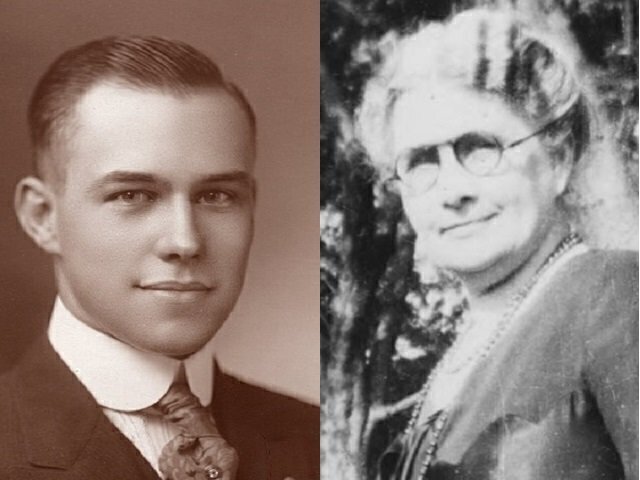On the anniversary of the 19th Amendment's ratification, we look back at a young politician whose unexpected vote in the Tennessee state legislature gave all women the right to vote.

The story of Harry T. Burn, the seemingly rogue 24-year-old legislator, has become a bit embellished over the years. And in fact, women had won the right to vote in some states before the 19th Amendment was passed by Congress and ratified by three-quarters of the states then in the Union.
But in August 1920, the struggle between the suffrage movement (which wanted the vote for women) and powerful anti-suffrage forces had come down to a series of votes in Tennessee.
The suffrage movement had found a way to get Congress to approve the proposed 19th Amendment, with the endorsement of outgoing President Woodrow Wilson (who hadn’t supported it until it became needed as part of the war effort).
By the middle of 1920, a total of 35 states had voted to ratify the amendment. The problem was that 36 states were needed, and there was only one state left where a vote could be taken that year.
Four other available states—Connecticut, Vermont, North Carolina and Florida—would not consider the resolution for various reasons. The remaining states had rejected the amendment. But Tennessee decided it would tackle the ratification vote.
Supporters from both sides camped out at a Nashville hotel and began intense lobbying efforts in what became known as the War of the Roses. Supporters of suffrage wore yellow roses in public; the anti-suffragists wore red roses.
The suffragists had lobbied Burn, the youngest member of the state house, but they were unsure of how he would vote.
They did know that any vote to bring the amendment to the floor would be too close to call, as well as the vote to ratify the amendment.
On August 18, the legislature voted on a motion to table, or delay, any ratification vote. It seemed as if the anti-suffragists had enough votes to delay a 19th Amendment vote after Burn arrived wearing a red rose and voted to table the amendment.
But another representative, Banks Turner, switched sides during the roll call, leaving the vote deadlocked and moving the ratification vote forward. The suffragists would need one more vote to make the 19th Amendment the law of the land, and what happened stunned the legislature.
Then, early in the voting, Burn, who came from a conservative district and wore the red rose on his lapel, surprised everyone when he said in a clear voice “aye” when asked if he would vote to ratify the amendment.
Burn also had a letter in his suit pocket, from his mother, Febb E. Burn, in which she asked him to “be a good boy” and vote for the amendment. When Turner also voted in favor of the ratification, the 70-year-old battle for suffrage was over.
The Christian Science Monitor is an independent international news organization.
We want to help you to see news events as starting points for constructive conversations. We seek to cut through the froth of the political spin cycle to underlying truths and values. We want to be so focused on progress that together we can provide a credible and constructive counter-narrative to the hopelessness-, anger-, and fear-inducing brand of discourse that is so pervasive in the news.
We’re committed to the following three things:
- We will challenge conventional thinking. As forces from politics to social media try to break us into competing tribes—political, racial, or economic – together we’ll rethink the question “Who is my neighbor?”
- We will listen to you. We need you to hold us accountable – to keep us honest and grounded. To inspire us with what inspires you. Together, we can build a community of people who ask more from news.
- We will change how you see news. News must be accurate and trustworthy, but facts alone can miss the whole story—the story of us. We are much better than much of today’s news portrays us to be. We will have the courage to look into both the best and the worst in us – and not to blame, but to demand better.
The Monitor's global approach is reflected in how founder Mary Baker Eddy described its aim is to embrace the human family, shedding light with the conviction that understanding the world's problems and possibilities moves us toward solutions.
This approach has served our readers and story subjects well over the years, winning us seven Pulitzer Prizes and more than a dozen Overseas Press Club awards.